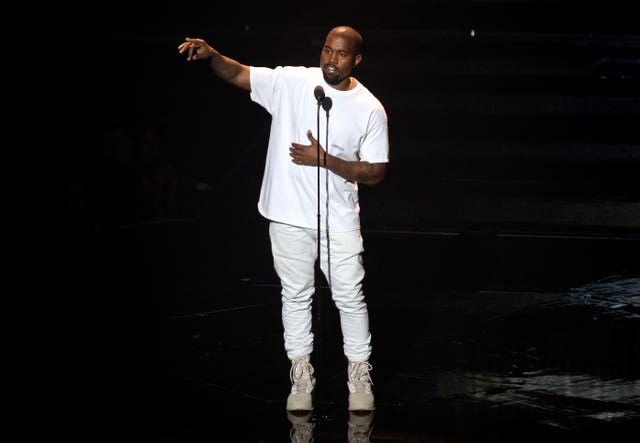Kanye West’s suggestion that 400 years of slavery was a “choice” has been heavily criticised as “insulting” and “harmful” by historians.
The rapper and fashion designer caused outrage during an interview with celebrity news outlet TMZ.
“When you hear about slavery for 400 years, 400 years? That sounds like a choice. Like, you was there for 400 years, and it’s all of y’all? It’s like we’re mentally imprisoned,” the 40-year-old said.
Following a public backlash, he defended his comment on Twitter as “an example of free thought” and said “we can’t be mentally imprisoned for another 400 years”.
the reason why I brought up the 400 years point is because we can't be mentally imprisoned for another 400 years. We need free thought now. Even the statement was an example of free thought It was just an idea
— KANYE WEST (@kanyewest) May 1, 2018
But the comment went “a bridge too far”, said Professor Manuel Barcia, a historian at the University of Leeds.
“He is basically ignoring the past to look at the future so he’s trying to clean sweep the past of African Americans, which I think is obviously very insensitive and wrong,” Barcia told the Press Association.
“Families were split, many of them got killed, the slavery they faced across the Atlantic was far more brutal than what they faced in Africa.
“The transatlantic slave trade was a crime. Voluntary for whom? People didn’t sell themselves into slavery, they were sold,” the academic added.
An estimated 12.5 million African people were taken by European traders against their will from throughout Africa and transported across the Atlantic between the 16th and 19th century.
Overall, about 10.7 million made it to the Americas alive, according to the Trans-Atlantic Slave Trade Database.
Dr Andrea Livesey, lecturer in slavery at the University of Bristol, said West’s comments were historically incorrect and insulting to those living with the effects of the trade.
“The legacies of slavery include institutionalised racism, endemic inequality, and for someone like Kanye West, who is now incredibly privileged, it’s insulting to say that all of this was a choice.
“It’s interesting as well for people who are actively fighting racial discrimination in society today – we have the Black Lives Matter movement for example.
“It’s harmful for those fights and organisations to say what they’re fighting was choice. The comments (are) ill-informed, not properly thought out, and historically incorrect,” she added.

Dr Livesey, whose research looks at the Louisiana Writers’ Project and its interviews with formerly enslaved people in the 1930s, said the interviewees “never lost sight of who to blame”.
“They never blamed themselves for that experience.
“They talked about their families being split up … they were very keen to get across that this wasn’t their choice, and they did all they could to resist the institution.”
The academic said it is also incorrect to assume that slaves were “mentally enslaved” – many of them took on acts of resistance as well and engaging in revolts against slave owners, such as Nat Turner’s slave rebellion in Virginia in 1831.
Other acts of resistance included running away, sabotaging worktools or, for the women working in masters’ houses, spilling tea on their mistresses or burning a hole in their dresses.
Mr Barcia said he had one piece of advice for Mr West: “He needs to read and stop making up things.
“Africans bought and sold people into slavery even before the Europeans arrived.
“But there was a massive change once the Europeans arrived, because the demand for a slave, to take them, to work in excruciating conditions on the other side of the Atlantic, was not their fault.”
He added: “To suggest that these people were happy slaves, this is pretty much a bridge too far.”
